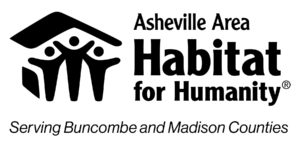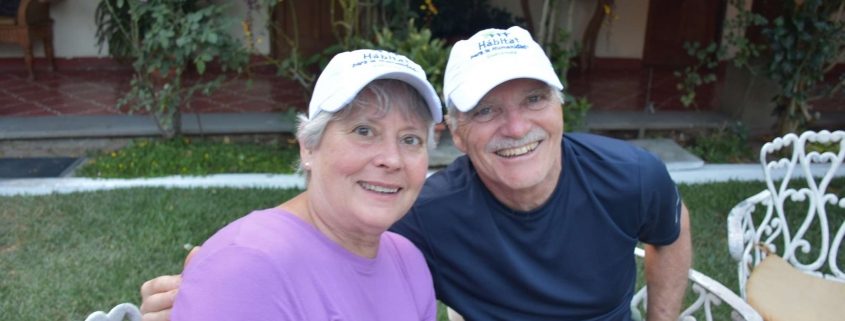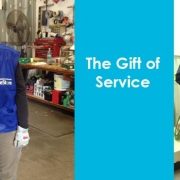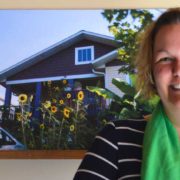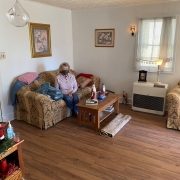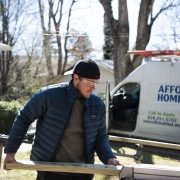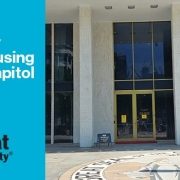Bernie Koesters: Making an Impact Locally and Globally
By Ariane Kjellquist
From rehabbing a 100+ year old house in Portugal and installing smokeless stoves in Guatemala, to teaching woodworking to “street kids” in Bolivia and building Habitat homes here in Asheville, Bernie Koesters (pictured above with his wife Sue) is driven by the belief that “we need to give back, especially those of us that have more. We have an obligation to give back.”
Sue shares the same sentiment. She went back to school to get a nursing degree with the desire to work in under-served rural communities. It was that desire that took the couple to Bolivia for a 7-month stint. In addition to teaching street kids there woodworking skills, Bernie designed and built safety guards for existing equipment and helped refurbish used tools purchased with a grant.
When you hear Bernie talk about the work he does with Habitat and other non-profits, you might assume, as I did, that he is a retired engineer. Many Habitat volunteers are. Instead, his upbringing is what taught this retired CPA the skills he uses to give back. Raised one of seven on a farm in Ohio, he and his siblings learned to repair and rebuild farm equipment in the off-season. “We didn’t have a lot of money, so we needed to make things last.”
A seasoned Habitat for Humanity Global Village trip participant (in fact, he and Sue were just in Guatemala this month), Bernie has seen first-hand the impact that safe, decent and affordable housing has on families globally and locally.
“What I saw making the biggest impact on families in Guatemala was water filters and smokeless stoves. The stoves free families from respiratory illness and they see a healthier future for themselves and their kids.”
Habitat for Humanity Guatemala reports that 52% of Guatemalans have respiratory illness and 95% of water is contaminated. Asheville Habitat staffer and Global Village trip leader Joel Johnson added, “The cost of a smokeless stove is only $100 USD, but it will change the lives of Guatemalan women and children dramatically. Most have severe respiratory illness because they are not cooking or heating with proper ventilation.” A water filter costs a mere $35, makes water potable and significantly reduces water-borne illness.
Excited by the prospect of a healthier future and per the Habitat model, Guatemalan homeowners contribute “sweat equity”. This primarily happens before out-of-town work teams arrive. Using pre-made forms, families press adobe blocks that the volunteers later use to build smokeless stoves.
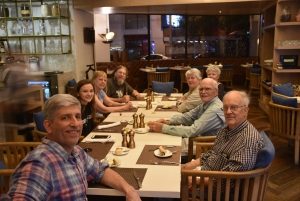
“I really enjoy meeting people and realizing that no matter where you are, others are just like us– just trying to make it, day in and day out. Everyone is just trying to move to a level that is about more than just surviving; into a different position of living.”
Bernie also mentioned another highlight: lunch with the mothers and children (fathers are usually off working). “Language never seems to be a barrier. A lot can be communicated with hand signals, a friendly face or a smile.”
DYK? Asheville Habitat has been “following our tithe” to Guatemala for many years now and we are one of 77 Habitat affiliates engaged in the Global Village program.
